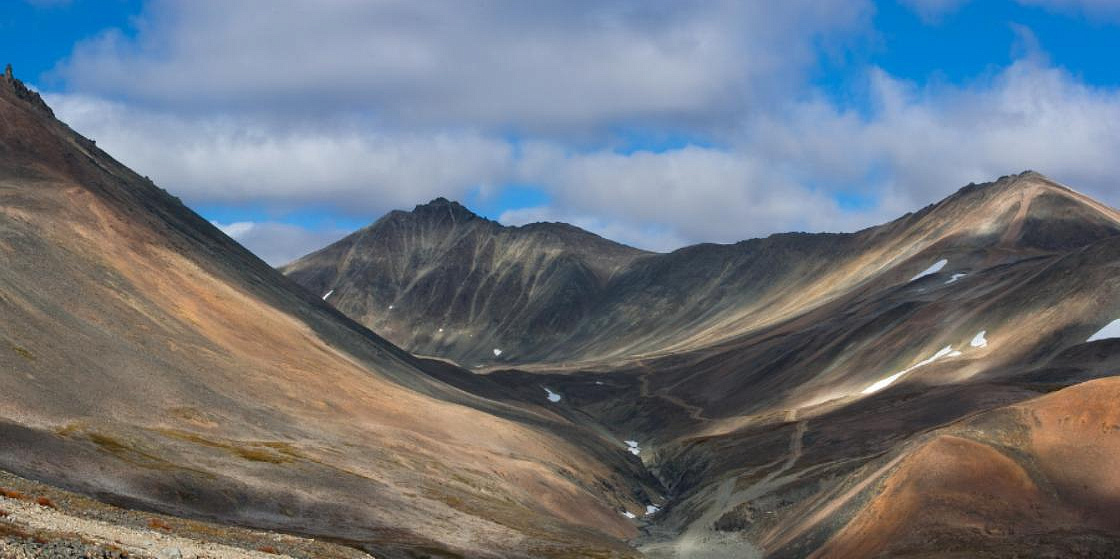
Photo: Kamenev Andrey/GeoPhoto.ru
Major Road Concession Contract to Be Signed in Near Future
A concession contract worth some USD 0.7 billion to build a road for the Baimsky GOK project in the Chukotka Autonomous District will be signed in the near future, said Aleksey Chekunkov, the Minister for the Russian Far East and Arctic when on visit to the city of Blagoveshchensk this 2 February.
New public-private partnership mechanisms are being implemented in Russia under the Far Eastern Concession Programme launched in September 2021. The programme enables the federal, regional and local governments to enter into concession agreements with private entities for the construction of pieces of infrastructure at the expense of such entities, with their investment to be entirely or partially reimbursed by the Federal Government within 10 to 20 years. According to Minister Chekunkov, about 40 such projects worth USD 3.6 billion are currently under consideration.
A concession for a new road for the Baimsky copper plant to be built in Chukotka is one of such projects. A 420-kilometer-long road will connect the plant and a planned seaport at Cape Nagleynyn. While a section of this road will be built at the expense of KAZ Minerals, the Baimsky project investor, funds for the construction of the remainder of the road will be provided under the mentioned concession contract to be signed by the Ministry and Arctic Express, a subsidiary of KAZ Minerals.
The plant, which is to be commissioned in 2027, is expected to reach its planned output of some 1.4 million tonnes of copper concentrate per year by 2028.
Basic agreements on the first six concession projects were concluded at the Eastern Economic Forum held in Vladivostok, Russia on 2-4 September 2021. Two of them will be implemented in the Russian Arctic, namely, the mentioned road construction project and the one to build a nuclear power plant to supply electricity to remote off-grid polar areas of Yakutia and a planned gold mining project. Concession agreements are regarded as a tool for attracting additional funds into Russia’s Far Eastern and Arctic regions.
Arctic Today is a column by PORA CEO Alexander Stotskiy analyzing major international, national and regional events and trends in the Arctic.
New public-private partnership mechanisms are being implemented in Russia under the Far Eastern Concession Programme launched in September 2021. The programme enables the federal, regional and local governments to enter into concession agreements with private entities for the construction of pieces of infrastructure at the expense of such entities, with their investment to be entirely or partially reimbursed by the Federal Government within 10 to 20 years. According to Minister Chekunkov, about 40 such projects worth USD 3.6 billion are currently under consideration.
A concession for a new road for the Baimsky copper plant to be built in Chukotka is one of such projects. A 420-kilometer-long road will connect the plant and a planned seaport at Cape Nagleynyn. While a section of this road will be built at the expense of KAZ Minerals, the Baimsky project investor, funds for the construction of the remainder of the road will be provided under the mentioned concession contract to be signed by the Ministry and Arctic Express, a subsidiary of KAZ Minerals.
The plant, which is to be commissioned in 2027, is expected to reach its planned output of some 1.4 million tonnes of copper concentrate per year by 2028.
Basic agreements on the first six concession projects were concluded at the Eastern Economic Forum held in Vladivostok, Russia on 2-4 September 2021. Two of them will be implemented in the Russian Arctic, namely, the mentioned road construction project and the one to build a nuclear power plant to supply electricity to remote off-grid polar areas of Yakutia and a planned gold mining project. Concession agreements are regarded as a tool for attracting additional funds into Russia’s Far Eastern and Arctic regions.
Arctic Today is a column by PORA CEO Alexander Stotskiy analyzing major international, national and regional events and trends in the Arctic.
4 February 2022




